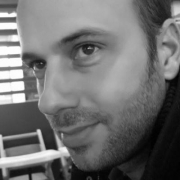
Copyright : Laboratoire LEMAR- 2018
Instrument design and development is a service of LEMAR. It aims to meet the needs of researchers in terms of creation of technological tools.
The service seeks to propose technical solutions in order to concretize a scientific idea. Several designs-developments are carried out each year by the service whether for biologists, sedimentologists, biogeochemists, geographers or physicists. The members of the service have skills in electronic and computer design in several languages (Python, Java, C / C ++, HTML, Arduino, Android ...) and applications based on connected objects. They are thus able to make prototypes, to program embedded systems, control software for measuring devices or to create graphical interfaces for the exploitation of data.
One of these conceptions, the RORCAL network, was developed in partnership with the researchers of CEREMA's LEMAR and Coastal and Environmental Engineering Laboratory (LGCE). It consists in the networking of multi-parameter observation devices in the coastal zone (buoys, boats, benthic stations, profilers). These instruments are capable, in addition to generating data of environmental and physicochemical parameters, to connect with each other and thus to share information, programming orders.
In order to develop the tools best adapted to the needs, the requests are made directly to the developers of the service, upstream of a project repository to help identify the possibilities in relation to the needs and thus propose the solution the most suitable. Exchanges will make it possible to define the feasibility of the project.
The department is also involved in the training of professional licensing students such as SEME, SARII and ENIB engineering schools, Télécom Bretagne through tutored projects and / or internships for laboratory projects. PhD students and post-docs are also welcomed by the service. The head of the department, Eric Duvieilbourg, is also national and internal trainer of the CNRS / UMR. It can therefore provide the following training:

 BIODIMAR
Scroll to top
BIODIMAR
Scroll to top